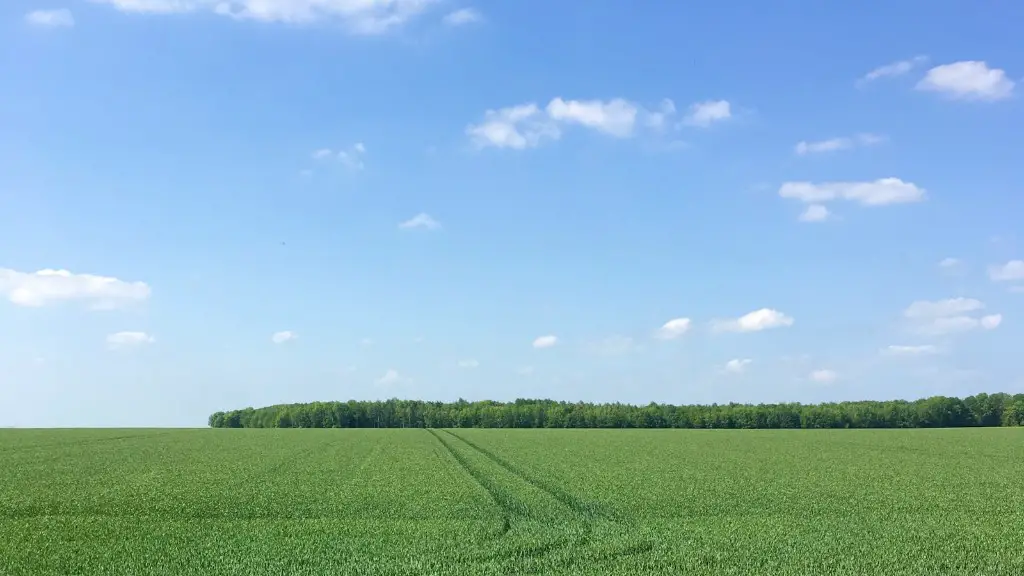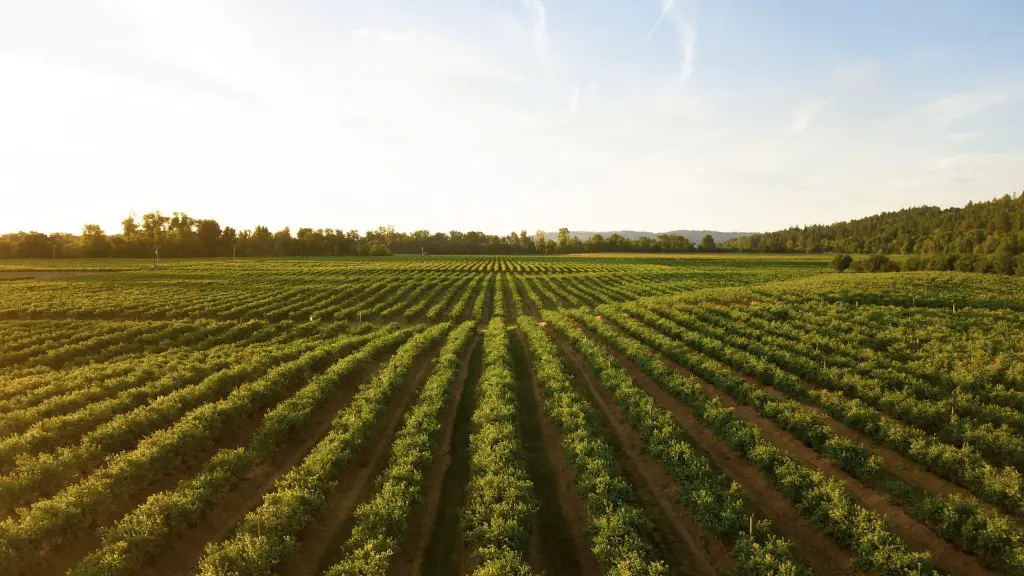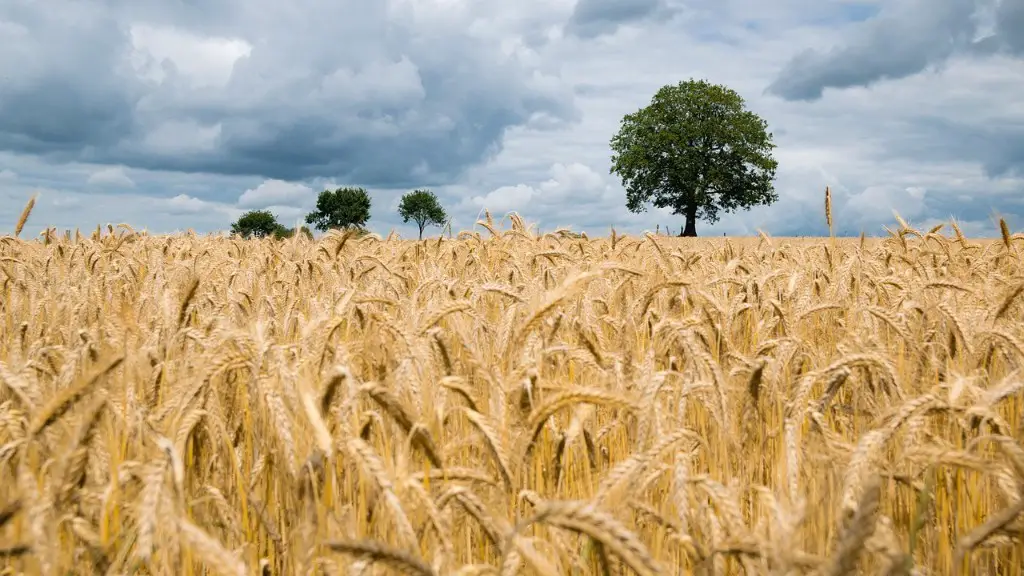Agriculture led to the development of civilizations by providing the food necessary to support a growing population. Agriculture also allowed for the domestication of plants and animals, which led to the development of new technologies and the growth of cities.
The rise of agriculture led to the development of settled civilizations by making it possible for people to live in one place and farm the land. Agriculture allowed for the growth of cities and the rise of civilizations by providing a food supply that could support a larger population. Agriculture also led to the development of new technologies, such as irrigation and planting techniques, that increased the productivity of farms and allowed for the growth of even more populous cities.
Why was agriculture important to the development of civilization?
Agriculture has been a vital part of human existence for millennia. It was only with the invention of farming that people were able to grow all the food they needed in one place. This led to a massive population growth and the creation of cities and trade. Agriculture has had a profound impact on human civilization and is truly one of humanity’s greatest achievements.
The Agricultural Revolution was a period of time in which food was grown and stored more efficiently, populations increased and settlements grew larger. This created both the incentive and the means to produce even more food on more land. Agriculture spread at different rates, depending on climate and geography.
How long has agriculture contributed to the growth and development of civilization
Between 7,000 and 10,000 years ago, during the Neolithic era, humans invented agriculture. There were eight Neolithic crops: emmer wheat, einkorn wheat, peas, lentils, bitter vetch, hulled barley, chickpeas, and flax. The Neolithic era ended with the development of metal tools.
The Agricultural Revolution was a pivotal moment in human history, as it set the foundation for modern human life. The ability to stay in one general area and cultivate our own food made life much more manageable, and contributed to the growth of human society in terms of culture, technology, and more. This Agricultural Revolution was a key factor in the development of civilization as we know it today.
What are 3 reasons why agriculture is important?
#1 Agriculture is the main source of raw materials for many industries.
#2 Agriculture is important to international trade.
#3 Agriculture plays a big role in a nation’s revenue.
#4 Agriculture provides employment for many people.
#5 Agriculture is crucial to a country’s development.
#6 Agriculture can help heal the environment.
#7 Agriculture goes hand-in-hand with war.
#8 Agriculture is a vital part of the economy.
Agriculture plays a vital role in creating the enabling environment for biodiversity. By increasing biodiversity, we can improve soil health, reduce erosion, and improve water conservation. Additionally, healthier pollinators will help to ensure a healthier ecosystem.
What are 3 impacts from the agricultural revolution?
The agricultural revolution was a turning point in human history, and it had a profound impact on the way we live today. It brought about a newfound dependence on the land, and introduced new fears of scarcity. It also led to a decline in nutrition and an increase in infectious diseases contracted from domesticated animals. All of these factors have contributed to societal inequality in one way or another. While the agricultural revolution was a pivotal moment in our history, it is clear that it also had some negative consequences for humanity.
Farming has had a profound impact on the development of human communities. By making it possible to produce food surpluses, farming allowed for the rise of trade and commerce, which in turn led to the development of more permanent settlements and the growth of cities. The rise of agriculture also allowed for the development of new technologies and the growth of science and knowledge. In short, farming has changed the world in a myriad of ways, both big and small.
How did agriculture change the life of early humans
Agriculture has definitely brought about some important changes in human life. Giving up the nomadic lifestyle and instead settling down in one place has been a big change. Now, instead of wandering around and looking for food, people can grow their own food. This has led to people being much more settled in one place, which has had a number of other ripple effects.
The Neolithic Revolution, or the (First) Agricultural Revolution, was a wide-scale transition of many human cultures during the Neolithic period from a lifestyle of hunting and gathering to one of agriculture and settlement, making an increasingly large population possible. This transition occurred first in the Fertile Crescent, and later in other parts of the world. The reasons for the transition are still debated, but it is thought that a combination of factors, including a change in the climate and the availability of new plants and animals, played a role.
What is the importance of agriculture?
The agriculture sector is a critical driver of economic growth and development. As the primary provider of food, agriculture is a cornerstone of human existence. In addition, as a key provider of industrial raw materials, agriculture is a major contributor to economic activity in other sectors of the economy.
The agriculture sector plays a vital role in ensuring economic stability and growth. Agriculture is a key sector in terms of employment, with over 1.3 billion people employed in the sector globally. In addition, the sector contributes significantly to global export earnings, with agricultural exports totaling US$1.5 trillion in 2015.
The agriculture sector is also an important contributor to economic growth and development. In many developing countries, agriculture is the primary source of income and livelihoods. In addition, the sector provides critical inputs into other sectors of the economy, such as manufacturing and agri-business.
The agriculture sector is facing significant challenges in the 21st century. Climate change, water scarcity, land degradation, and other environmental issues are undermining the sector’s productivity and viability. In addition, the sector faces stiff competition from other sectors of the economy, such as the manufacturing and service sectors.
Despite the challenges, the agriculture sector remains a critical part of the global economy and holds
A civilization expands through trade, conflict, and exploration. All three elements are necessary for a civilization to grow and remain stable for a long period of time. If one of these elements is missing, the civilization will not be able to expand and will eventually collapse.
What are 3 benefits of the Agricultural Revolution
The development of agriculture is called a revolution because it has had a radical impact on human society. Agriculture has allowed for the invention of the first cities, the development of industry, and the massive growth of the human population.
The Agricultural Revolution was a period of technological innovation in agriculture that greatly increased food production. This increase in food production led to improved diets, longer life spans, and an increase in population. As population increased, so did the pool for workers in industry. The Agricultural Revolution was a key factor in the Industrial Revolution.
What was the most important effect of the Agricultural Revolution?
The Agricultural Revolution was a time of great change for farming. One of the most important changes was the development of crop rotation systems that used turnips and clover. This system, known as the Norfolk four-course rotation, greatly increased agricultural output.
The basic needs for human survival; food, shelter, and clothing, are all dependent on agriculture for their production. Raw materials such as crops for food, silk for cloth, and wood for shelter, all come from agriculture. Agriculture is thus a vital part of human society, and its importance cannot be understated.
Final Words
Early agriculture allowed for the domestication of plants and animals, which led to the development of civilizations. Agriculture allowed for the growth of larger populations, which in turn led to the development of cities and civilizations. Agriculture allowed for the domestication of plants and animals, which led to the development of civilizations. Agriculture allowed for the growth of larger populations, which in turn led to the development of cities and civilizations.
the rise of agriculture led to the development of civilizations because it allowed for the growth of cities and the rise of civilizations. Agriculture allowed for the domestication of plants and animals, which led to the development of civilizations. Agriculture allowed for the growth of cities and the rise of civilizations.





